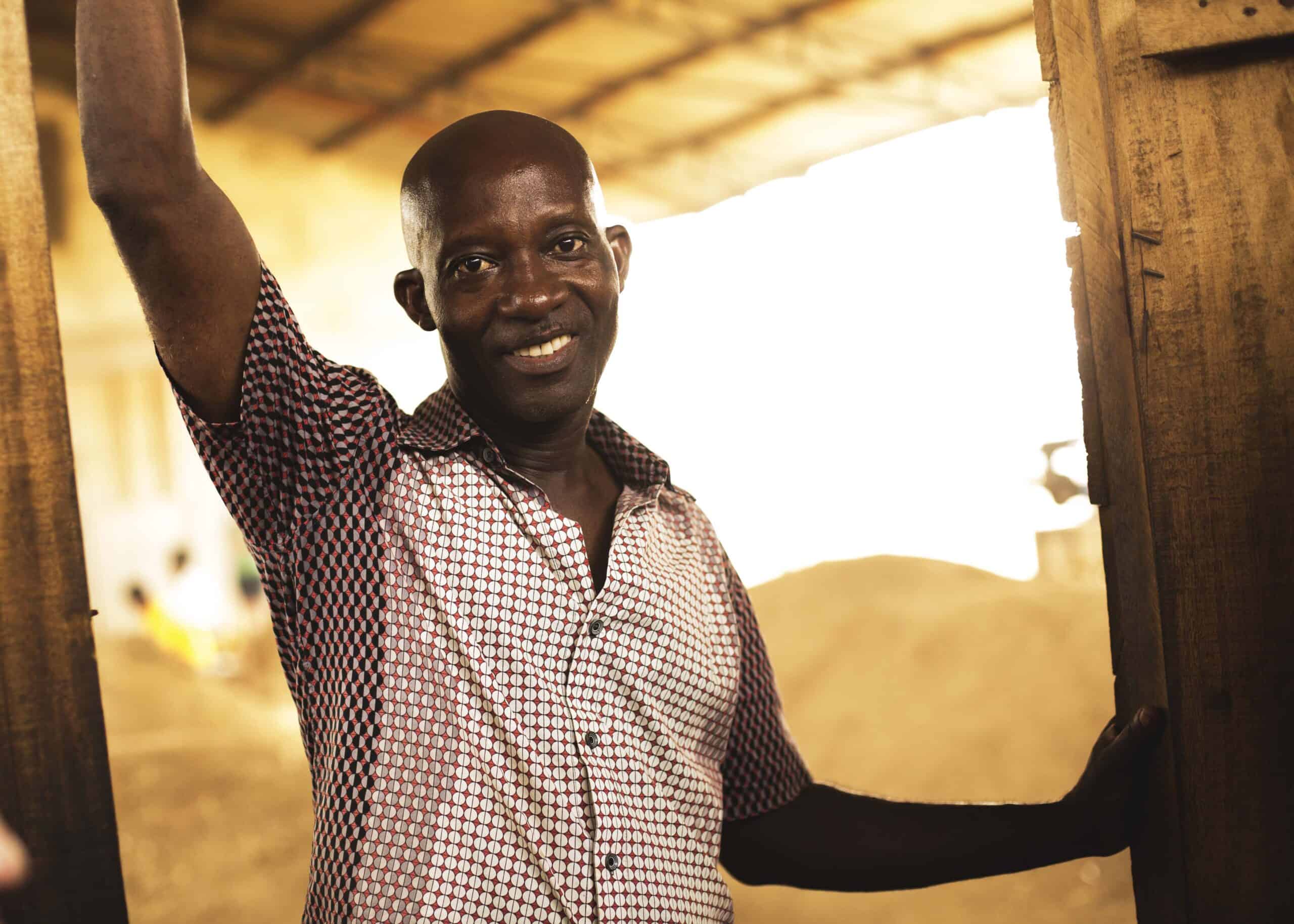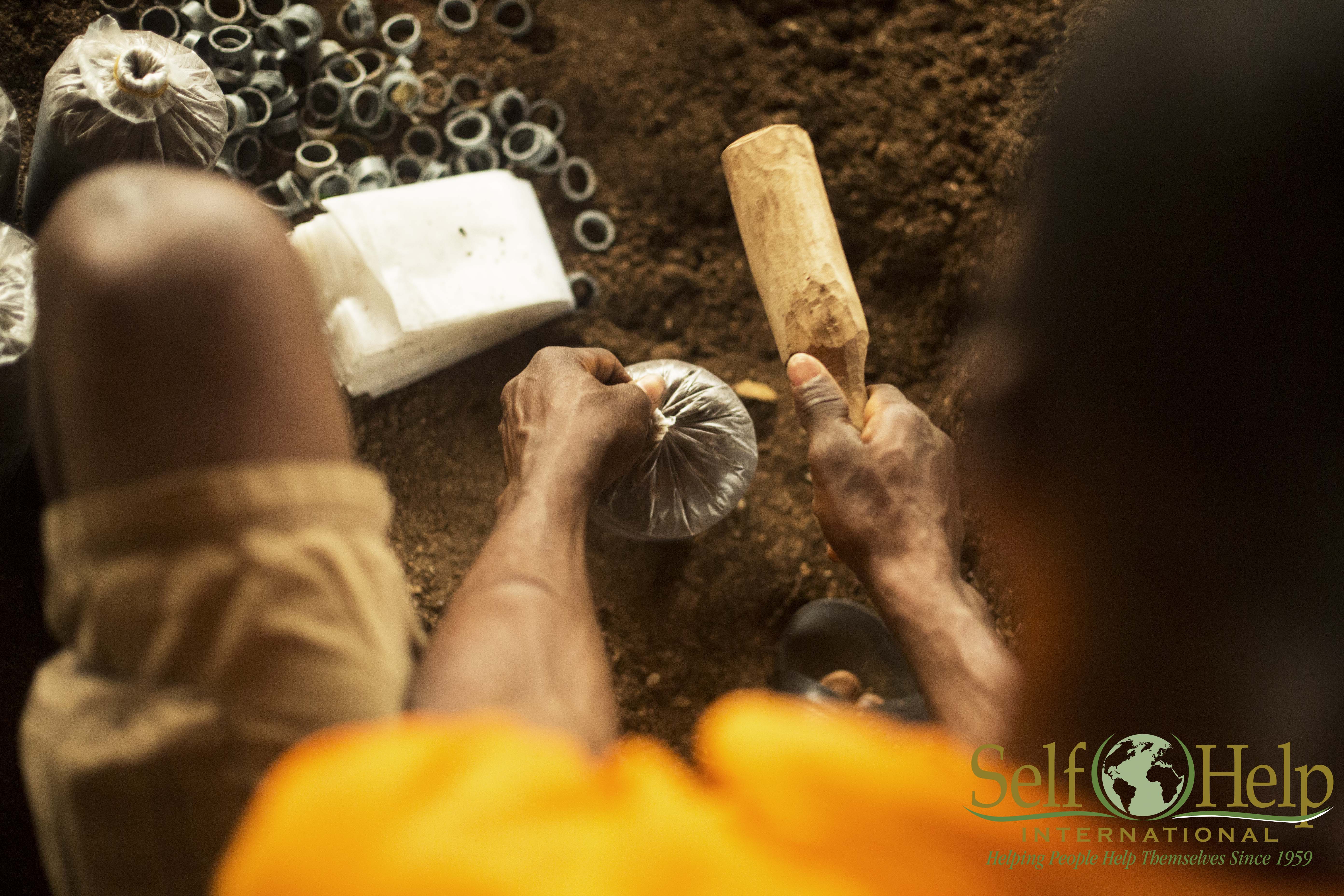
For fifteen years, Osei worked as a timber merchant. He would go to the forest to cut down trees, send them to his factory, and cut them into smaller sizes both for local use and also for export. But due to deforestation, there are fewer trees to cut and the timber business is no longer lucrative. Furthermore, for the past five years, Ghana has suffered a major power crisis which has led to the collapse of many industries that rely on a regular source of electricity including Osei’s timber factory.
Osei and his wife have four children; two boys and two girls, ages 30, 27, 22 and 10. Though he is now 53 years old, Osei has no plans to retire since his children are still in school. With the collapse of his factory, finding an alternative source of livelihood is a must.
On February 26, 2015, Osei enrolled at the Fran Mueller and Virginia Lageschulte Training Centre (FMVLTC) and learned how to produce mushrooms using sawdust. He was greatly relieved to discover that the stockpile of sawdust at the factory site could be used to produce mushroom to generate revenue. In the past, he would set the sawdust on fire to dispose of it, which caused considerable environmental pollution and lung infections. Neighbours complained each time he burnt sawdust, but he no longer disposes of it this way.

Preparing the mushroom bags for sterilization
Now, a year later, Osei has three employees, including his wife and two local men, and together they produce 1,500 bags of mushrooms every month. It costs three cedis ($0.75) to produce one bag of mushrooms, which is then sold for 8-10 cedis ($2 – $2.50). Demand for his produce is high, for Osei is currently working to fulfil an order to supply 10,000 bags of spawned compost.
Osei also learned how to rear snails at the FMVL Training Centre and this second business is also picking up gradually. The spread of knowledge goes beyond Osei: his friends who were also in the timber business are now leaning from him how to produce mushrooms and rear snails as well.
Osei with his snail beds
At present production rates, Osei will utilize approximately 17 tons of sawdust annually, which otherwise would have been burnt and polluted the atmosphere. With his friends following his lead and turning their sawdust into mushroom production as well, indiscriminate burning of sawdust and the associated atmospheric pollution will be reduced, and lung-related diseases among children living in timber mill communities will be reduced as well.
Osei employs two men to help produce mushrooms
Saving the environment while earning a living constitutes sustainable development, but still, we know our work is not done. With our forest almost depleted, an alternative growth medium must be found. After witnessing Osei’s initial successes in producing mushrooms in rice straw, the FMVL Training Centre is currently supporting a student from Kwadaso College of Agriculture to study the performance of rice straw as a growth medium for mushroom production. The results of the study will be shared widely to ensure all practicing mushroom producers can put this new knowledge into action.
Osei’s 10 year old daughter home from school

Powered by Wapiti Digital #servetheherd
This is my rich text.
This is more rich text.
I am a list
Lists are cool